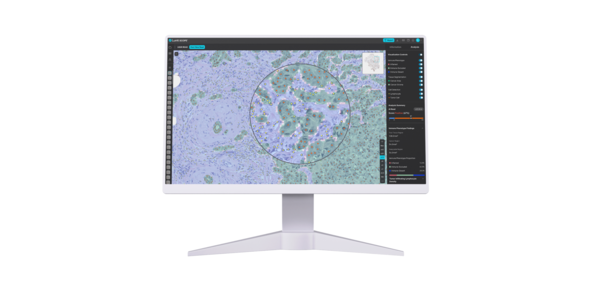Lunit said it has signed a research collaboration agreement with the University of Texas MD Anderson Cancer Center to analyze the use of MSD’s immunotherapy Keytruda (pembrolizumab) in multiple cancer types.

Under the accord, Lunit and MD Anderson will use Lunit SCOPE IO, Lunit’s proprietary AI solution that analyzes hematoxylin and eosin (H&E)-stained tissue slides to enable immune phenotyping, to evaluate improving patient data analysis and increasing the effective use of treatment for patients with different types of cancer by assessing MSD’s clinical data.
Professor Aung Naing of the Department of Investigational Cancer Therapeutics at MD Anderson will be the study’s Principal Investigator (PI).
“There is a lack of effective biomarkers for immunotherapy,” Lunit CEO Suh Beom-seok said. “With existing methods having limitations, the landscape is changing rapidly, and technologies, such as AI, play a significant role in enabling new biomarkers.”
Suh added that the company is particularly excited to work with Professor Naing to analyze biomarkers for pembrolizumab, one of the most important immunotherapy drugs.
Lunit SCOPE IO has been trained with more than 500,000 H&E slides and over 10 million cell annotations from about 150 pathologists.
It detects cancer areas, stroma, and tumor-infiltrating lymphocytes (TIL), an important immune cell type that plays a key role in immunotherapy.
LUNIT SCOPE IO generates an immune phenotype map based on TIL density within the tumor microenvironment and supports analysis in more than 16 cancer types.
Related articles
- Phase 3 trial results for NSCLC using Lunit Scope published in JCO
- Lunit, 1st Korean firm to join Saudi Vision 2030 Healthcare Sandbox, aims AI-powered cancer care
- [ESMO 2023] Lunit, Medpacto, TiumBio present research results at ESMO 2023
- Lunit to provide AI-powered chest screening solution to the Philippines
- Lunit, CancerX leverage AI-powered solutions to reduce financial toxicity for cancer
- Lunit's AI-powered 3D breast tomosynthesis solution earns FDA clearance
- Lunit to deploy AI chest screening to 5 Saudi hospitals, expanding presence in Middle East
- Lunit's chest X-ray AI imaging solution to be reimbursable from March 2024
- Lunit publishes 'Lunit Scope IO' study in Nature’s sister publication

